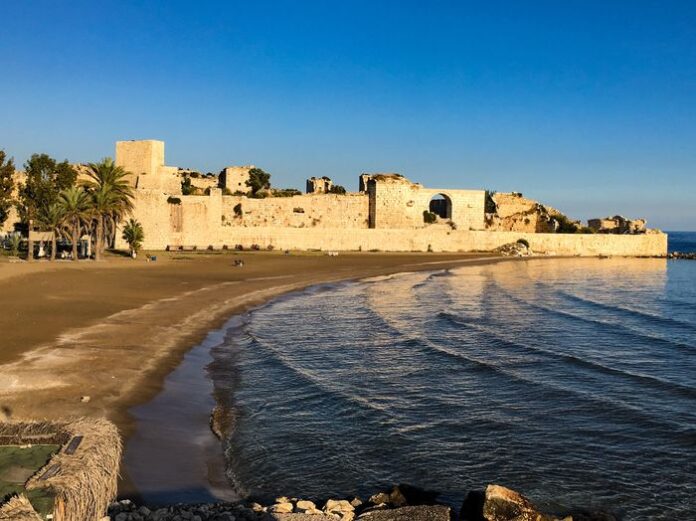Michael, on the other hand, being the supreme ruler of the Empire, was in a superior position and he made good use of it. There was no secret about his hatred for John. The days of pretence were over. He simply ordered his enemy to embark on a ship and appear in his own defence. He would have to explain why he treated the emperor with gross contempt and why he refused to obey his orders.
14. Accordingly John set sail. The emperor, meanwhile, watched the sea from a high vantage-point in the palace, and when the ship carrying his uncle was about to anchor in the Great Harbour, he gave a signal from above to the sailors, as they were putting in, to turn about. Actually, this signal had been arranged beforehand.
A second trireme, ready to put to sea and in the wake of the first, then hailed John’s ship, took him on board, and carried him off to a distant place of exile.**64 It was through this man’s efforts that Michael had become first Caesar and subsequently emperor, yet the reverence he formerly felt for John now meant so little to him that he indicted punishment on his uncle without so much as a blush of shame. In fact, he banished him to a place reserved exclusively for convicted pirates.
John went away
It is only fair to add that afterwards, when his anger had died somewhat, he did consider it proper to allow him certain small favours. So John went away, not merely to satisfy the emperor’s vengeance, but destined to see misfortunes one after the other, for the fate which by the decree of Providence fell to his lot — I will speak [93] in moderate terms — never gave him a single respite; evil followed evil, till, finally, fate laid on his eyes**65 the hand of the executioner and brought him, with terrible swiftness, to a most violent death.**66
15. The rascally Michael now took upon his own shoulders the sole control of the Empire. His intentions were anything but moderate, for his first efforts were directed to a complete reversal of policy: everything had to conform to his wishes. Government officials were treated with no sign of friendliness whatever. The emperor’s hostility to them was evident both in his look and in his general attitude. In fact, his arrogant speech and manners terrified them.
His ambition centred on one object: to make his realm in very truth ‘subject’ to himself; most of the officials were to be stripped of their customary privileges and the people were to have their freedom restored; he would then have the support of the people, who were many, rather than of the nobility, who were few.**67 As for his personal bodyguard, he filled the corps with new soldiers, Scythian youths whom he had bought some time previously.







